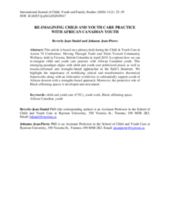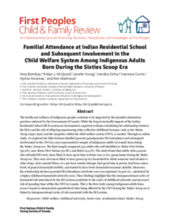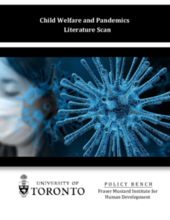Displaying 141 - 150 of 345
In this article, the authors examine theoretical and legislative conceptualizations of child neglect in terms of their relationship to the disproportionate involvement of Indigenous children in child welfare across Canada and, more specifically, in Quebec.
This first of a two-part paper discusses the first of a two-stage, transatlantic study aimed at identifying and exploring threshold concepts in residential child care.
This study examined the outcomes of a training aimed at enhancing child welfare practitioners’ use of data from the the Ontario Looking After Children (OnLAC) project for service planning related to young people’s educational outcomes.
The purpose of the study was to evaluate the associations between child maltreatment, cognitive schemas of disconnection/rejection reported in emerging adulthood, and social support perceived in emerging adulthood among young women who have exited placements in residential care.
This article presents findings from a thematic analysis of interviews with 13 foster parents who participated in a mixed methods study exploring inclusive foster care in Canada - an approach requiring foster parents to engage with the family, community, and cultural life of the child for whom they care.
New federal legislation in Canada now allows First Nations to take control of their own child welfare, and the Saskatchewan First Nations organization is now asking the federal government to transfer funds to First Nations agencies, allowing them to set up and run high quality services in their own communities, according to this article from CBC News.
In this paper, the authors report the results of a study examining parenting challenges among a sample of African immigrant parents in Alberta, Canada.
This article explores how we can re-imagine child and youth care practice with African Canadian youth.
Through an online study, the authors of this paper explored the links between familial (parents/grandparents) Indian Residential School (IRS) attendance and subsequent involvement in the child welfare system (CWS) in a non-representative sample of Indigenous adults in Canada born during the Sixties Scoop era.
This literature scan identifies and synthesizes existing literature examining the effects of pandemics and the identification of policy solutions to mitigate their effects on a well defined group of Canada’s population—children in the care of Canada’s child welfare system.



